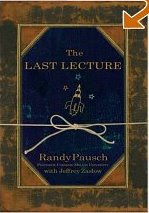 A great article in this morning’s newspaper forces me to don my tie-dye shirt and dance around the campfire in my Birkenstocks while singing “Kumbaya.” The headline is, “Acupuncture Cuts Post-Surgical Pain.”
A great article in this morning’s newspaper forces me to don my tie-dye shirt and dance around the campfire in my Birkenstocks while singing “Kumbaya.” The headline is, “Acupuncture Cuts Post-Surgical Pain.”The gist of the article is that researchers at
NIH scientists don’t understand how acupuncture works because they can’t scientifically measure how needles affect pain management. Thus, as my med buddies are all too happy to point out, there is no proof. My only counter is that if the acupuncture patient isn’t experiencing any pain, then something must be having an effect.
As a writer, I keep thinking of the great chapters and subsequent controversy that’s ahead for my beleaguered surgeon, Kim Donovan, if I dare to allow her to bring in her clinic’s acupuncturist. Between her Reiki and acupuncture, I’m betting the new chief of surgery, (coming in book 3) Erik Behler, will start referring to Kim’s patients as being fried and skewered. But more importantly, think of the impact patients could have by not having to ingest powerful pain meds for certain surgeries. Oh my holy liver!








2 comments:
Despite me being a physician-scientist I often have an attitude that if my patients believe something is helpful for them I am all for it as long as they tell me and it has a low risk of harm. Having said that I think many skeptics would still say that all this proves is that acupuncture can provide a placebo effect. The question remains as to whether or not it is actually these acupuncture points or meridians that really have no physiologic basis or just the fact that needles are being stuck into you. A better study would include at least 3 arms. 1) patients receiving traditional acupuncture. 2) patients receiving sham acupuncture, meaning they still get needles placed but not into the traditional 'meridians'. 3) a no treatment group. Some might also argue for a 4th group in which the needles withdraw back.
The mind does play a big role in pain perception and if you believe you are getting something to help control pain, well then that may be all you need.
When I was in Tucson last month giving a seminar, someone connected with U of A told me how their integrative medicine dept is in the process of doing scientific studies to determine exactly how alternatives work. I'm talkin' under-the-micrscope-blood-test type stuff. Should be interesting.
Post a Comment